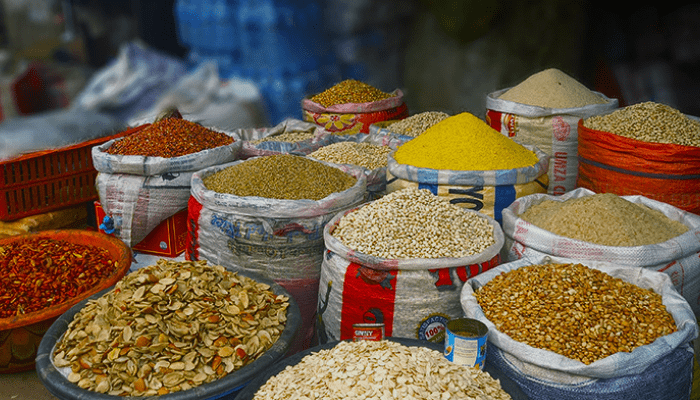Nigeria’s headline inflation rate rose to 33.88% in October 2024, up from 32.7% in September, reflecting a month-on-month increase of 1.18 percentage points. The latest figures were released in the National Bureau of Statistics (NBS) Consumer Price Index (CPI) report on Friday.
The NBS attributed the inflationary surge primarily to higher transportation costs and rising food prices.
On a year-on-year basis, the headline inflation rate in October 2024 was 6.55 percentage points higher than the 27.33% recorded in October 2023, indicating a significant increase compared to the same month in the previous year.
In terms of month-on-month inflation, October 2024 saw a rate of 2.64%, a slight increase of 0.12 percentage points from the 2.52% recorded in September 2024. This suggests a faster rate of price increases in October compared to the previous month.
Food inflation soars to 39.16%
Food inflation in Nigeria continued its upward trend in October 2024, reaching 39.16% on a year-on-year basis, up 7.64 percentage points from the 31.52% recorded in October 2023. The NBS highlighted significant price hikes in key food items, including: Grains (guinea corn, rice, maize), Tubers (yam, water yam, and coco yam), Oils (palm oil, vegetable oil) and Beverages (milo, lipton, bournvita (coffee, tea & cocoa)).
On a month-on-month basis, food inflation stood at 2.94%, marking a 0.30 percentage point rise from the 2.64% recorded in September 2024. This increase was largely driven by price hikes in the following categories: Oils & Fats (palm oil, vegetable oil); Fish (mudfish, croaker, fresh fish); Meat (dried beef, goat meat, mutton); Grains & Starches (bread, guinea corn flour, rice, plantain flour).
Annual food inflation hits 38.12%
The average annual food inflation rate for the 12 months ending in October 2024 was 38.12%, representing an 11.79 percentage point increase compared to the same period in 2023, when it stood at 26.33%.
The persistent rise in food prices continues to place significant strain on Nigerian households, while the broader inflationary pressures reflect ongoing challenges in the economy.


